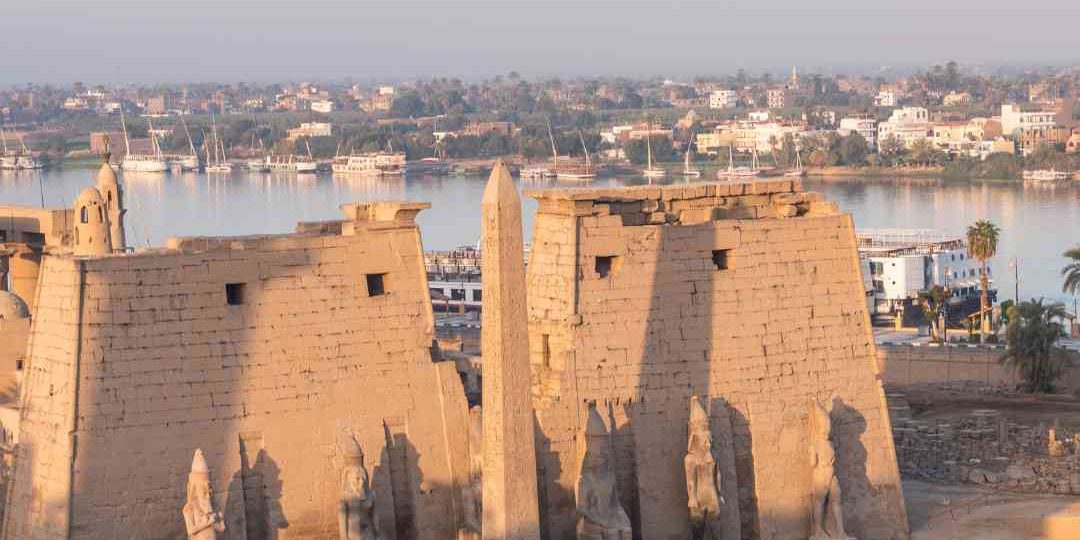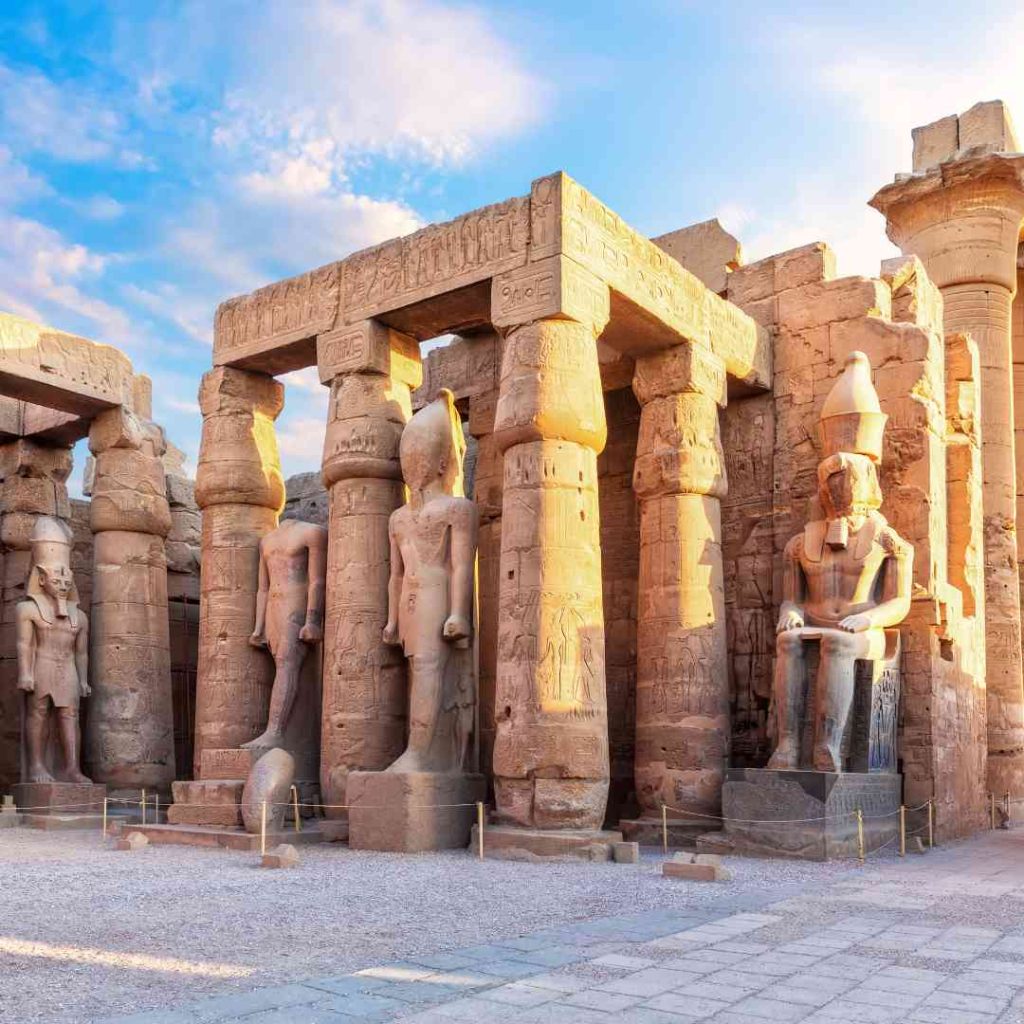Luxor’s Gems: Off-the-Beaten-Path Things to Do in Luxor!
Luxor, often hailed as the “world’s greatest open-air museum,” is a treasure trove of ancient wonders and cultural delights. While the iconic sites like the Valley of the Kings and Karnak Temple draw crowds, Luxor has many hidden gems waiting to be discovered. For those looking to explore beyond the usual tourist trails, there are countless off-the-beaten-path things to do in Luxor.
From lesser-known tombs and serene rural villages to quaint museums and bustling local markets, this city offers a wealth of unique experiences. In this article, we’ll uncover some of Luxor’s hidden gems that will make your visit truly unforgettable.
Explore the Tombs of Nobles: A Unique Thing to Do in Luxor
One of the most fascinating yet often overlooked things to do in Luxor is exploring the Tombs of Nobles. Nestled in the Theban Hills, these tombs offer a glimpse into the lives of ancient Egypt’s elite. Unlike the grandiose tombs of pharaohs, the Tombs of Nobles are adorned with intricate paintings that depict everyday life, religious rituals, and the afterlife. The vivid colors and detailed scenes provide a captivating insight into ancient Egyptian society and culture.
Among the must-visit tombs is the Tomb of Ramose, a vizier during the reign of Pharaoh Amenhotep III. The tomb’s stunning reliefs showcase a blend of traditional and Amarna art styles, making it a unique attraction. Another notable site is the Tomb of Rekhmire, a vizier under Thutmose III and Amenhotep II. The tomb’s walls are covered with scenes illustrating Rekhmire’s duties, foreign tributes, and daily activities, offering a rich narrative of ancient life.
The Tombs of Nobles also include the Tomb of Sennefer, known as the “Tomb of the Vines,” due to its ceiling decorated with a lush grapevine motif. The vivid paintings and serene atmosphere make it a delightful experience. Visiting these tombs is a journey back in time, providing a more intimate and personal view of ancient Egypt. With fewer tourists around, you’ll have the opportunity to explore these incredible sites at your own pace.
For history enthusiasts and curious travelers alike, the Tombs of Nobles offer an enriching and unique thing to do in Luxor. They provide a quieter, more reflective experience compared to the larger, more frequented tombs. So, step off the beaten path and discover the hidden stories of Luxor’s ancient elite.
Discover the Tranquility of Luxor’s Rural Villages: Hidden Things to Do in Luxor
For a more immersive cultural experience, exploring the rural villages around Luxor is one of the most rewarding things to do. These villages offer a peaceful escape from the bustling city and a chance to experience the authentic rural lifestyle of the region. One such hidden gem is the village of El Qurna, located on the west bank of the Nile. Known for its traditional mud-brick houses and warm hospitality, El Qurna provides a glimpse into the daily lives of its residents.
Visitors to El Qurna can wander through the narrow alleys, visit local artisans, and even participate in traditional craft-making. The village is famous for its pottery and alabaster workshops, where skilled craftsmen create beautiful, handmade items. These workshops offer a unique opportunity to learn about ancient techniques and purchase authentic souvenirs directly from the artisans.
Another charming village to explore is Al-Tod, located south of Luxor. This village is home to the Temple of Montu, dedicated to the falcon-headed god of war. Although less visited than other temples, Montu Temple’s serene surroundings and well-preserved reliefs make it a worthwhile stop. The village itself is a picturesque blend of lush fields, palm groves, and traditional homes. It’s an ideal place for a leisurely stroll or a relaxing afternoon away from the crowds.
A visit to Luxor’s rural villages also provides the opportunity to experience local cuisine. Many families in these villages are happy to share their culinary traditions with visitors, offering delicious home-cooked meals made from fresh, local ingredients. From fragrant rice dishes to flavorful stews, the food in these villages is a true reflection of the region’s rich agricultural heritage.
Exploring Luxor’s rural villages is a peaceful and enriching experience. It allows visitors to connect with the local community and gain a deeper understanding of Egypt’s cultural heritage. These hidden gems offer a slower, more contemplative pace, making them a perfect addition to any Luxor itinerary. For a truly authentic experience, make sure to include a visit to these tranquil villages in your list of things to do in Luxor.
Visit the Luxor Museum: An Off-the-Beaten-Path Thing to Do in Luxor
While the grand temples and tombs often steal the spotlight, the Luxor Museum is an off-the-beaten-path gem that offers a fascinating journey through Egypt’s history. Located on the east bank of the Nile, this museum is a must-visit for anyone interested in ancient artifacts and the rich history of Thebes. Unlike the larger Egyptian Museum in Cairo, the Luxor Museum provides an intimate and carefully curated collection of artifacts, making it one of the best things to do in Luxor for history enthusiasts.
The museum’s collection includes a stunning array of sculptures, jewelry, and everyday objects from ancient Egypt. One of the highlights is the beautifully preserved statues of Pharaoh Amenhotep III and the god Amun, which greet visitors at the entrance. The museum also houses the mummies of two pharaohs, Ahmose I and Ramses I, offering a rare glimpse into the royal burial practices of ancient Egypt.
Another notable exhibit is the cache of artifacts discovered in the Luxor Temple, including a collection of stunningly crafted jewelry and ceremonial items. These artifacts provide valuable insights into the religious and cultural practices of the time. The museum’s displays are well-organized and accompanied by detailed descriptions, making it easy for visitors to understand the historical context of each piece.
The Luxor Museum also features a collection of Coptic and Islamic artifacts, highlighting the region’s diverse cultural heritage. From ancient Christian manuscripts to intricate Islamic ceramics, these exhibits offer a broader perspective on Luxor’s history. The museum’s tranquil gardens and well-designed layout create a pleasant and informative experience.
For those looking to delve deeper into Egypt’s history, the Luxor Museum is an invaluable resource. It’s a quiet and contemplative space, perfect for reflecting on the incredible history and artistry of the ancient Egyptians. Visiting the museum is an enriching and off-the-beaten-path thing to do in Luxor, offering a unique perspective on the city’s rich past.
Stroll Through the Banana Island: A Refreshing Thing to Do in Luxor
For a refreshing change of pace, a visit to Banana Island offers a relaxing and enjoyable experience. This small island, located on the Nile River near Luxor, is a lush oasis filled with banana groves, palm trees, and vibrant flowers. A stroll through Banana Island is one of the most delightful things to do in Luxor, providing a peaceful escape from the city’s historical sites.
The journey to Banana Island begins with a scenic boat ride across the Nile, offering stunning views of Luxor’s skyline and the surrounding landscape. As you approach the island, the verdant greenery and tranquil waters create a serene and inviting atmosphere. Upon arrival, visitors are greeted with a refreshing banana treat, a signature welcome that sets the tone for the visit.
The island is a haven for nature lovers and offers a variety of activities for visitors to enjoy. You can take a leisurely walk through the banana plantations, explore the island’s gardens, or simply relax by the riverbank. The island’s peaceful ambiance makes it an ideal spot for a picnic or a quiet afternoon of reading and reflection. The cool shade of the banana trees and the gentle breeze from the Nile provide a perfect setting for relaxation.
For those interested in local culture, Banana Island offers the opportunity to interact with the island’s friendly residents. You can visit local farms, learn about traditional farming practices, and even try your hand at harvesting bananas. The island’s small market offers a selection of handmade crafts and local products, providing a chance to support the local community and take home unique souvenirs.
Banana Island is also a great destination for families, offering plenty of space for children to play and explore. The island’s calm and safe environment makes it an ideal spot for a family outing. Whether you’re looking for a peaceful retreat or a fun day out with the family, Banana Island is a refreshing and off-the-beaten-path thing to do in Luxor.
Experience the Local Markets: Authentic Things to Do in Luxor
No visit to Luxor is complete without experiencing the vibrant local markets, where the city’s rich culture and lively atmosphere come to life. Wandering through these bustling markets is one of the most authentic things to do in Luxor, offering a sensory feast of sights, sounds, and smells. From colorful spices and fresh produce to handmade crafts and traditional clothing, the markets of Luxor are a treasure trove of local goods and cultural experiences.
One of the most famous markets in Luxor is the Souq, a labyrinth of narrow alleys filled with shops and stalls selling a wide variety of items. Here, you can find everything from exotic spices and fragrant perfumes to intricate jewelry and beautifully woven textiles. The market’s vibrant colors and lively energy create a captivating atmosphere, making it a must-visit destination for travelers seeking an authentic taste of Luxor.
As you explore the market, you’ll encounter friendly vendors eager to share their wares and stories. The art of haggling is an integral part of the shopping experience, and visitors are encouraged to engage in friendly negotiations with the sellers. This interaction adds a fun and cultural dimension to the experience, allowing you to connect with the locals and learn about their traditions.
In addition to shopping, the local markets offer a fantastic opportunity to sample traditional Egyptian street food. From freshly baked bread and savory falafel to sweet pastries and refreshing hibiscus tea, the market’s food stalls offer a delicious array of flavors. Trying the local delicacies is a delightful way to immerse yourself in the culinary culture of Luxor.
For a more laid-back experience, the markets along the Corniche offer a pleasant stroll along the Nile. These markets are known for their relaxed atmosphere and beautiful views of the river. Here, you can find a selection of souvenirs, including papyrus paintings, alabaster statues, and colorful scarves. The friendly vendors and serene setting make it a perfect place to shop and enjoy the beauty of the Nile.
Experiencing the local markets is an essential part of any visit to Luxor. The markets offer a vibrant and authentic glimpse into the city’s daily life and culture. Whether you’re shopping for unique souvenirs, savoring delicious street food, or simply soaking in the lively atmosphere, the markets of Luxor provide a memorable and immersive experience.
Luxor’s hidden gems offer a wealth of unique and off-the-beaten-path experiences that go beyond the well-trodden tourist trails. From exploring the lesser-known Tombs of Nobles and discovering the tranquility of rural villages to visiting the Luxor Museum, strolling through Banana Island, and experiencing the vibrant local markets, there are countless things to do in Luxor that will captivate and inspire you. These hidden treasures provide a deeper and more intimate connection with the city’s rich history and culture, making your visit to Luxor truly unforgettable. So, step off the beaten path and uncover the magic of Luxor’s hidden gems. Book Your Luxor Tour With Travel 2 Egypt today and embark on an adventure that will leave you with memories to last a lifetime.



